With a tempering of blockchain fanfare as the technology crested the peak of the hype cycle, Oracle’s two-year-old foray into the blockchain domain may have gone largely unnoticed. Especially as it might have been dismissed as a copy cat or catch up move, as yet another large technology firm converted to the blockchain gospel like Microsoft and IBM before it. Oracle’s move, however, comes with a very different asset base, for which it is starting to realize gains from its blockchain offering. If the wellspring of all digital transformation is an enterprise’s data lake and how it connects across markets and stakeholders, then Oracle, the world’s largest database provider with number one positions in virtually every industry, has not only built these reservoirs, its software and more than 137,000 employees serve as the access channels to the insights, markets and opportunities it holds. For this alone, Oracle may be the firm to watch and even the firm to beat as the enterprise blockchain wars heat up.
From speaking to senior leaders at Oracle, the firm knows that this broad cross-industry integration is the source of its advantage vis-à-vis its peers. How it has positioned its blockchain bet comes with a keen awareness that this next wave of technology innovation is not about discrete yet disconnected pilot projects in single industry silos. Rather, the future for enterprise blockchain efforts, especially in mature sectors, lies in making high-trust, low-friction connections between trading counterparties, wherein blockchain becomes not only the ledger of reference, it becomes a source for entirely new operating models. Even JP Morgan’s about face on cryptocurrencies with the launch of the JPM Coin, has much less to do with a free-floating speculative digital asset and more to do with counterparty trading and settlement efficiencies in the bank and with the bank’s external stakeholders.
This move, much like the sectors where Oracle is seeing traction, such as retail, supply chain management, money transfer, among others, is a drive to increase speed, track and trace capabilities and, critically, accelerate financial settlements between counterparties – a process that without blockchain losses billions each year to insidious sources of friction, such as one-sided bookkeeping, asymmetrical information, and financial amnesia of the deliberate and accidental variety. Because of this long-standing source of friction, all facets of the global economy and how large firms trade with each other is a highly audited, costly and untrusting operating environment. Overcoming this burden of proof leads to low levels of customer satisfaction, slow processing times and ultimately high costs of evidencing rightful claims.
In this word, where no one trusts each other, a would-be claimant to an insurance policy, for example, must first “decriminalize” their rightful claim to any money, a process that is cumbersome and can take years, for lingering fears of fraud and other financial risks. Imagine an alternate world where everyone participating in a commercial relationship was trusted from the outset and due commerce could flow in a highly traceable and nearly instantaneous settlement process. Oracle sits astride the data sets across industries to begin making these types of meaningful connections a reality, wherein the lack of commercial trust is the stranded asset that is being monetized. Critically, for this to work, boards and senior executives have tired of hearing about the art of the possible with blockchain, with very little in the way of real world or tangible results. To this end, Oracle has opted for a plug and play approach with the technology interface, which may be the very best way to get the technology and all the jargon to fade to the background. Like people, executive teams and boards care about outcomes and not necessarily how all the moving parts come together.
Amid so much risk aversion with digital transformation and growing ambivalence of blockchain hype, Oracle’s moves to simplify outcomes through a cloud-based, plug and play solution that sits astride its broad database capabilities can deliver that elusive return on technology investments that is so hard for mature industries to grasp. The real challenge, now that the technology stack is beginning to fade to the background, is for senior leaders to embrace new strategic thinking about the directions the markets want their businesses to go and the gains in trust they can make when they opt for decentralization in corners of their operating model. Rather than relegating blockchain to a backoffice tool in the search for marginal cost or efficiency improvements, as some industries have done, the emergence of a competitive enterprise blockchain field can embolden companies to think creatively and act decisively in their experimentation.


